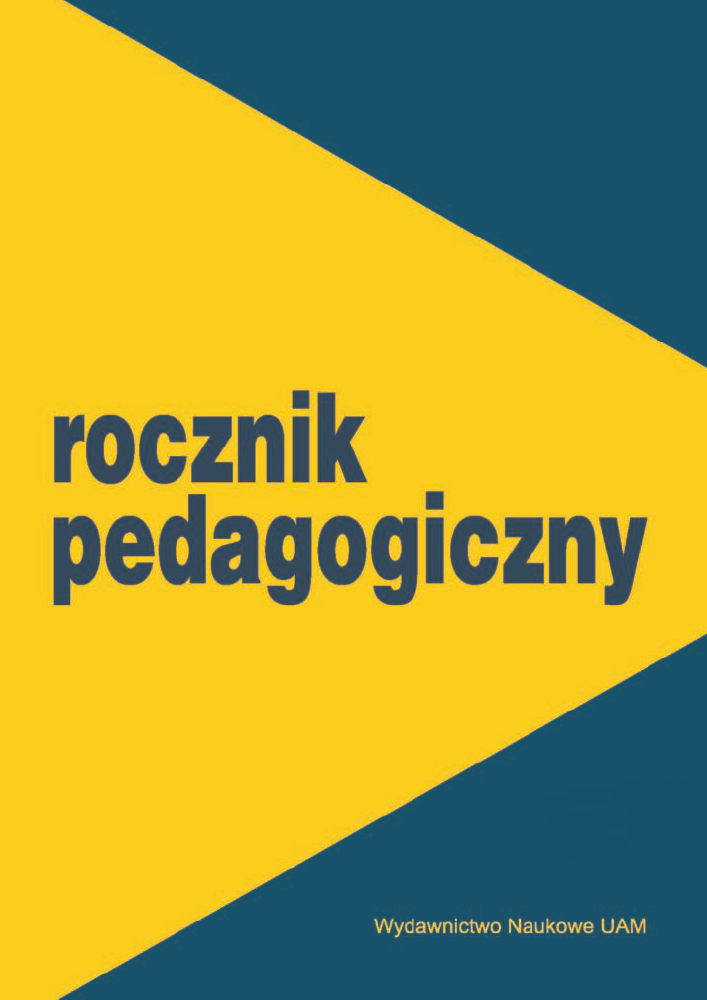Abstrakt
The paper is a research report aimed at explaining the influence of parents’ behavior related to the upbringing of the surveyed university students on their self-control. The article raises the issue of academic youth, but narrows it down to their self-control, so important in the process of identity formation. The results of the conducted research are addressed primarily to parents and educators. The first part of the article emphasizes the importance of self-control in building a human identity, it also presents the basic concepts of the discussed issues. For the purposes of this article, appropriate research was carried out to explain the impact of upbringing mistakes made by the parents of the researched students on individual dimensions of their self-control. The causal relationship between upbringing mistakes and self-control factors was determined in the causal model of the studied phenomenon and derived from the path analysis. The text ends with an interpretation of the obtained results, as well as conclusions from the outcomes of the conducted research.
Bibliografia
Baumeister R.F., Wyczerpywanie się ego i funkcja wykonawcza Ja, [w:] Ja i tożsamość – perspektywa psychologiczna, red. A. Tesser, R.B. Felson, J.M. Suls, GWP, Gdańsk 2004, s. 17–38.
Baumeister R.F., Tierney J., Willpower: Rediscovering the greatest human strength, Penguin Books, New York 2011.
Braver T.S., Gray J.R., Burgess G.C., Explaining the many varieties of working memory variation: Dual mechanisms of cognitive control, [w:] Variation in working memory, eds. A.R. Conway,
C. Jarrold, J. Kane, A. Miyake, J.N. Towse, Oxford University Press, Oxford 2007, s. 76–106.
Cohen L., Manion L., Morrison K., Research methods in education, Routledge, London 2005.
Cybal-Michalska A., Tożsamość młodzieży w perspektywie globalnego świata. Studium socjopedagogiczne, Wydawnictwo Naukowe UAM, Poznań 2006.
Gurycka A., Błąd w wychowaniu, Wydawnictwa Szkolne i Pedagogiczne, Warszawa 1990.
Krug M.K., Carter C., Anterior Cingulate Cortex contributions to cognitive and emotional processing: A general purpose mechanism for cognitive control and self-control, [w:] Self-control in society, mind, and brain, eds. R.R. Hassin, K. Ochsner, Y. Trope, Oxford University Press, Oxford 2011, s. 3–26. DOI: https://doi.org/10.1093/acprof:oso/9780195391381.003.0001
Majerek B., Niepewność w społeczeństwie współczesnym. Studium socjopedagogiczne, Oficyna Wydawnicza „Impuls”, Kraków 2018.
Mariański J., Między rajem a apokalipsą. O potrzebie wychowania ku wartościom uniwersalnym, [w:] Wychowanie. Pojęcia. Procesy. Konteksty. Interdyscyplinarne ujęcie, t. 2, red. M. Dudzikowa i M. Czerepaniak-Walczak, GWP, Gdańsk 2007, s. 53–82.
Mischel W., Test Marshmallow. O pożytkach płynących z samokontroli, Smak Słowa, Sopot 2015.
Mudrecka I., Wzmacnianie samokontroli jako cel wychowania resocjalizującego, [w:] Teoretyczne i metodyczne aspekty resocjalizacji młodzieży niedostosowanej społecznie, red. I. Mudrecka, Pedagogium, Warszawa 2017.
Muraven M., Baumeister R.F., Self-regulation and depletion of limited resources: Does self-control resemble a muscle?, „Psychological Bulletin” 2000, No. 126, s. 247–259. DOI: https://doi.org/10.1037/0033-2909.126.2.247
Nęcka E., Skala samokontroli NAS-50, wersja polska, 2021, https://www.researchgate.net/publication/349376553_Skala_samokontroli_NAS-50_wersja_polska/ [dostęp: 10.06.2022].
Nęcka E., Wujcik R., Orzechowski J., Gruszka A., Janik B., Nowak M., Wójcik N., New scales for the assessment of self-control, „Polish Psychological Bulletin” 2016, Vol. 47, No. 3, s. 346–355. DOI: https://doi.org/10.1515/ppb-2016-0041
Remiszewska Z., Szanse i zagrożenia dla aksjologicznych podstaw życia człowieka, [w:] Życie wartościowe w perspektywie aksjologii pedagogicznej, red. A. Cudowska, Wydawnictwo Katedra, Gdańsk 2018, s. 37–54.
Richmond-Rakerd L.S., Caspi A., Ambler A., d’Arbeloff T., de Bruine M., Elliott M., Harrington H., Hogan S., Houts R.M., Ireland D., Keenan R., Knodt A.R., Melzer T.R., Park S., Poulton R., Ramrakha S., Rasmussen L.J.H., Sack E., Schmidt A.T., ... Moffit T.E., Childhood self-control
forecasts the pace of midlife aging and preparedness for old age, „PNAS Proceedings of the National Academy of Sciences of the United States of America” 2021, Vol. 118, No. 3, s. 1–11.
Szymański M.J., Edukacja w zmieniającym się społeczeństwie, Difin, Warszawa 2021.
Śliwerski B., Pedagogika ogólna. Podstawowe prawidłowości, Oficyna Wydawnicza „Impuls”, Kraków 2012.
Tangney J.P., Baumeister R.F., Boone A., High self-control predicts good adjustment, less pathology, better grades, and interpersonal success, „Journal of Personality” 2004, No. 72, s. 271–324. DOI: https://doi.org/10.1111/j.0022-3506.2004.00263.x
Tarullo A., Obradovic J., Gunnar M.R., Self-control and the developing brain, „Zero to Three” 2009, Vol. 29, No. 3, s. 31–37.
Tchorzewski A.M., Sukces i porażka w wychowaniu, „Edukacja Elementarna w Teorii i Praktyce” 2014, t. 34, nr 4, s. 9–25.
Wojciszke B., Doliński D., Psychologia społeczna, [w:] Psychologia. akademicka. Podręcznik, t. 2, red. J. Strelau, D. Doliński, GWP, Gdańsk 2018, s. 293–447.
Wysocka E., Doświadczanie życia w młodości – problemy, kryzysy i strategie ich rozwiązywania, Wydawnictwo UŚ, Katowice 2010.
Zaręba S.H., Zarzecki M., Homo consumens, homo eligens, homo creator – procesy fragmentaryzacji życia religijnego w zbiorowości młodzieży akademickiej, [w:] Między konstrukcją a dekonstrukcją uniwersum znaczeń. Badania religijności młodzieży akademickiej w latach 1988–1998–2005–2017, red. S.H. Zaręba i M. Zarzecki, Warszawskie Wydawnictwo Socjologiczne, Warszawa 2018, s. 9–26.
Licencja
Prawa autorskie (c) 1970 Zofia Remiszewska

Utwór dostępny jest na licencji Creative Commons Uznanie autorstwa – Użycie niekomercyjne – Bez utworów zależnych 4.0 Międzynarodowe.

